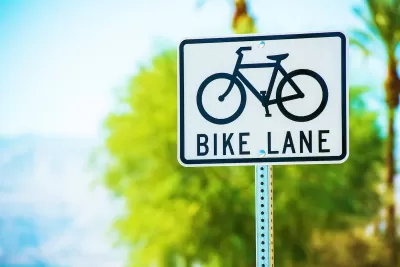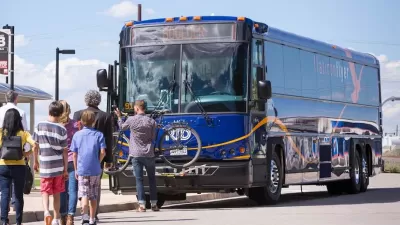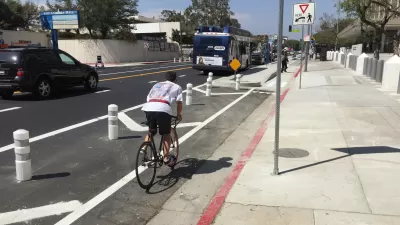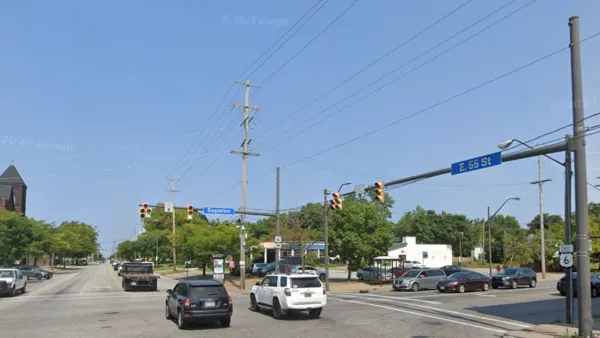City planners say limiting protected bike infrastructure to smaller streets isn’t enough to create a safe, connected bikeway network that reaches all parts of the city.

Denver planners are suggesting a change to the city’s bike lane strategy. After years of adding bike lanes to side streets, transportation planners now want to begin adding protected bike lanes to major arterial roads. “Some of the new bike lanes would be part of a new ‘core network’ that would help cyclists travel more directly over longer distances. They would use high-quality, permanent materials like concrete and would accommodate a high volume of cyclists, planners say.”
According to an article by Nathaniel Minor in Denverite, “Some of the city’s current bike lanes and low-traffic “neighborhood bikeways” abruptly end. Or, as with the 16th Avenue bike lane in the Uptown neighborhood, they run a block or two parallel to busy commercial corridors full of shops, restaurants and other destinations.” Putting more bike lanes on major roads would help people on bikes reach their destinations more easily and safely and avoid a ‘last-mile’ gap where they have to ride in mixed traffic or walk their bikes. Minor adds, “Denver law prohibits riding a bicycle on a sidewalk under most circumstances, but it makes an exception for cyclists reaching their final destination.”
Any changes to state highways such as Colorado Boulevard would require approval from the Colorado Department of Transportation (CDOT). CDOT officials say the agency is currently planning a new bus rapid transit (BRT) line for that road, as well as sidewalk improvements.
FULL STORY: Denver’s next big bike lane strategy: more protected lanes on busier streets

Maui's Vacation Rental Debate Turns Ugly
Verbal attacks, misinformation campaigns and fistfights plague a high-stakes debate to convert thousands of vacation rentals into long-term housing.

Planetizen Federal Action Tracker
A weekly monitor of how Trump’s orders and actions are impacting planners and planning in America.

In Urban Planning, AI Prompting Could be the New Design Thinking
Creativity has long been key to great urban design. What if we see AI as our new creative partner?

King County Supportive Housing Program Offers Hope for Unhoused Residents
The county is taking a ‘Housing First’ approach that prioritizes getting people into housing, then offering wraparound supportive services.

Researchers Use AI to Get Clearer Picture of US Housing
Analysts are using artificial intelligence to supercharge their research by allowing them to comb through data faster. Though these AI tools can be error prone, they save time and housing researchers are optimistic about the future.

Making Shared Micromobility More Inclusive
Cities and shared mobility system operators can do more to include people with disabilities in planning and operations, per a new report.
Urban Design for Planners 1: Software Tools
This six-course series explores essential urban design concepts using open source software and equips planners with the tools they need to participate fully in the urban design process.
Planning for Universal Design
Learn the tools for implementing Universal Design in planning regulations.
planning NEXT
Appalachian Highlands Housing Partners
Mpact (founded as Rail~Volution)
City of Camden Redevelopment Agency
City of Astoria
City of Portland
City of Laramie





























